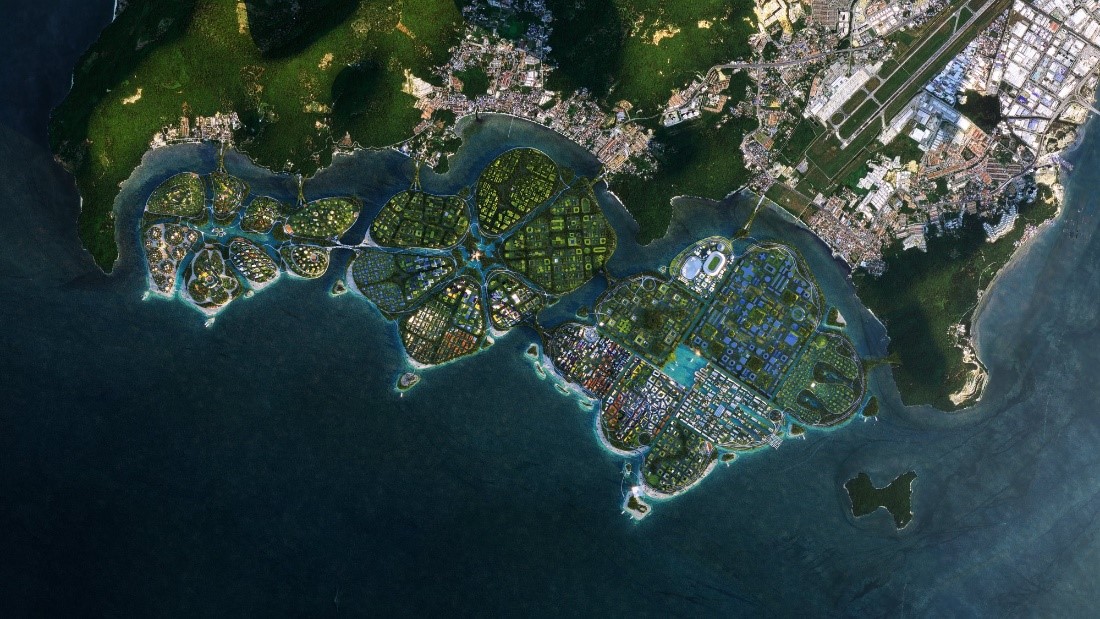
Source Murray Hunter
BANGKOK, Thailand: PETRONAS' intention to resort to court in a bid to maintain control over the trading and extraction of gas and oil-related products in Sarawak’s territory represents a humiliating, cruel and unjust attempt to seize what is not theirs. This blatant move disregards the special autonomy and inherent rights of the people of Sarawak under both domestic and international law, furthering a legacy of exploitation and marginalization that has persisted for decades.
It is clearly stated in the "Oil Mining Ordinance of 1958" that all oil and gas resources found within 200 nautical miles of Sarawak’s waters rightfully belong to the state. Despite this, Petronas has long monopolized these resources, funnelling wealth to Malaya at the expense of Sarawak and Sabah. Prominent figures, such as Tengku Razaleigh Hamzah, have openly revealed that since 1974, Petronas has paid RM40 billion annually to UMNO, while only a pittance was given to the states of Sarawak and Sabah, which contribute the lion’s share of Malaysia’s oil reserves.
The Continental Shelf Act 1966 (CSA66) and the Petroleum Development Act 1974 (PDA74) were acts that effectively transferred control of Sabah and Sarawak’s oil and gas resources to the federal government, were passed in breach of the Constitutional Safeguards in MA63. These safeguards protected the territorial boundaries and resources of Sabah and Sarawak, which should not have altered without their consent. Furthermore, these principles violated international law principles that uphold the integrity of pre-existing territorial boundaries.
As these resources fall within the 200 nautical miles regulated under the United Nations' Convention on the Law of the Sea (UNCLOS), all matters concerning their ownership and regulation should rightfully be decided by the International Court of Justice (ICJ). Not domestic courts dominated by federal interests.
NGO Sabah Action Body Advocating Rights (SABAR) filed Originating Summon in the High Court of Borneo challenging the validity of the Territorial Sea Act 2012 (TSA) limiting jurisdiction to 3 miles only boundary.
Since 1974, Petronas has acted unconscionably to deprived Sarawak and Sabah of the profits generated by the oil and gas extracted from their territories. This amounts to a significant economic injustice.
This exploitation has contributed significantly to the economic disparity between Sabah, Sarawak, and the rest of Malaysia.
The lack of adequate reinvestment in local infrastructure, education, and social services has left this resource -rich region lagging in development. Petronas' actions, along with Federal policies, have entrenched a cycle of poverty and backwardness, while the two territories watch their wealth benefit others.
Not only must Petronas return these profits, but interest should be imposed in accordance with international financial standards to compensate for the long-standing economic exploitation suffered by both states.
The call for Sarawak’s state-owned entity, Petroleum Sarawak Berhad (Petros), to take full control over its own oil and gas resources is not only justified but essential for ensuring the future economic independence of Sarawak. Similarly, Sabah must regain its rightful control over its own natural wealth, which has long been siphoned away under unfair federal agreements.
The only viable alternative for Sarawak and Sabah to prevent Malaya from continuing to humiliate and rob of their natural resources is to leave Malaysia. The formation of Malaysia in 1963 was based on an equal partnership between Malaya, Sabah, and Sarawak. However, this partnership has been consistently undermined, leaving Sarawak and Sabah as mere economic colonies of Malaya. If their rights continue to be violated and their resources exploited, leaving Malaysia may be the only path to securing true autonomy and justice.
It is time to either restore the equal partnership promised at the founding of Malaysia or for Sarawak and Sabah to seek their rightful sovereignty and economic independence through international legal mechanisms. The people of Sarawak and Sabah deserve to manage and benefit from their own wealth, free from continued exploitation by Malaya.
Daniel John Jambun President Borneo's Plight in Malaysia Foundation (BoPiMaFo)
Robert Pei President Sabah Sarawak Rights Australia New Zealand (SSRANZ)
Peter John Jaban Publicity and information Chief Sarawak Association for People's Aspirations (SAPA)
Moses Anap President Republic of Sabah North Borneo (RSNB).








0 Comments
LEAVE A REPLY
Your email address will not be published